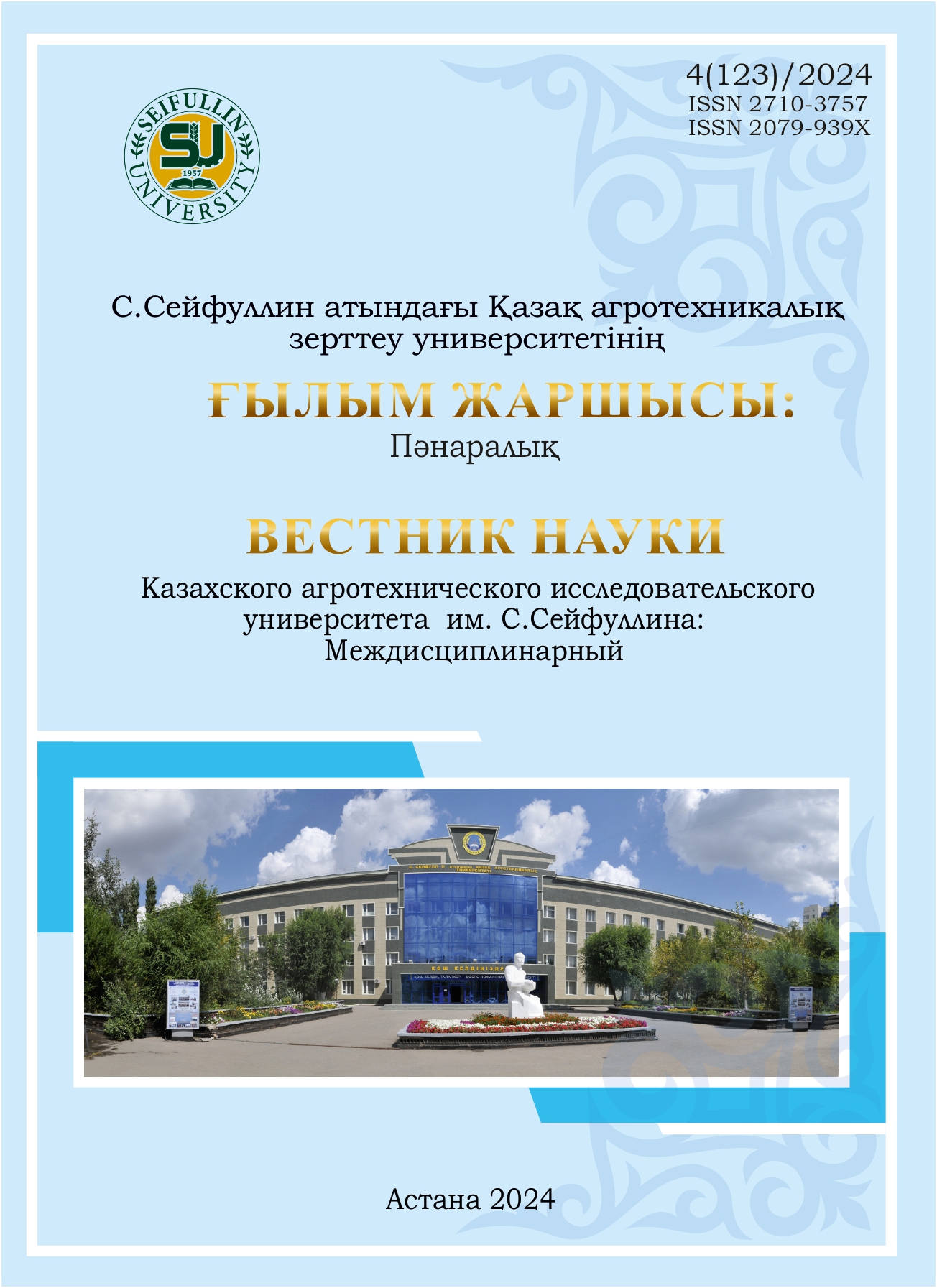Transformation of humus in southern chernozems under the influence of zero and traditional technologies in the conditions of the Аkmola region
DOI:
https://doi.org/10.51452/kazatu.2024.4(123).1773Keywords:
fulvic acid; humic acid; humus; mineral fertilizer; southern chernozem.Abstract
Background and Aim. The article examines the impact of mineral fertilizers on the agrochemical properties and humus content of southern carbonate chernozem under traditional and zero-tillage technologies. The quantity and quality of humus are highly sensitive to changes in environmental conditions. Therefore, studying soil organic matter is a critical issue in soil science, as it is necessary to understand the genetic characteristics of the soil and improve its use efficiency and fertility.
Materials and Methods. The study was conducted in 2024 on southern chernozems in the Akmola region. To determine changes in the qualitative indicators of soil humus, three soil profiles were made on experimental plots at the A.I. Barayev scientific and production center for grain farming, where zero and traditional tillage technologies have been used for a long time. The traditional tillage technology includes plowing with soil turnover, cultivation or disking, and then compaction. Under the zero-tillage technology, no soil tillage is performed.
Results. The study found that the long-term application of mineral fertilizers had a significant impact on the qualitative composition of humus. In the control group, ratio СGА:СFА = 1,2 was characterized by a predominance of the fulvate-humate type, while in the fertilizer-treated variants, this ratio increased to 2,0 and 2,3, transitioning to the humate type. Under the traditional tillage technology, the prolonged use of fertilizers led to changes in humus, expressed in an increase in the proportion of humic acids bound with calcium, which contributes to improved soil structure and stability.
Conclusion. Traditional technology affects the intensity of organic matter mineralization and increases nitrate nitrogen content, which positively impacts soil fertility in the short term. Thus, mineral fertilizers significantly influence humus formation, its structure, and stability, depending on the soil tillage technology used.

